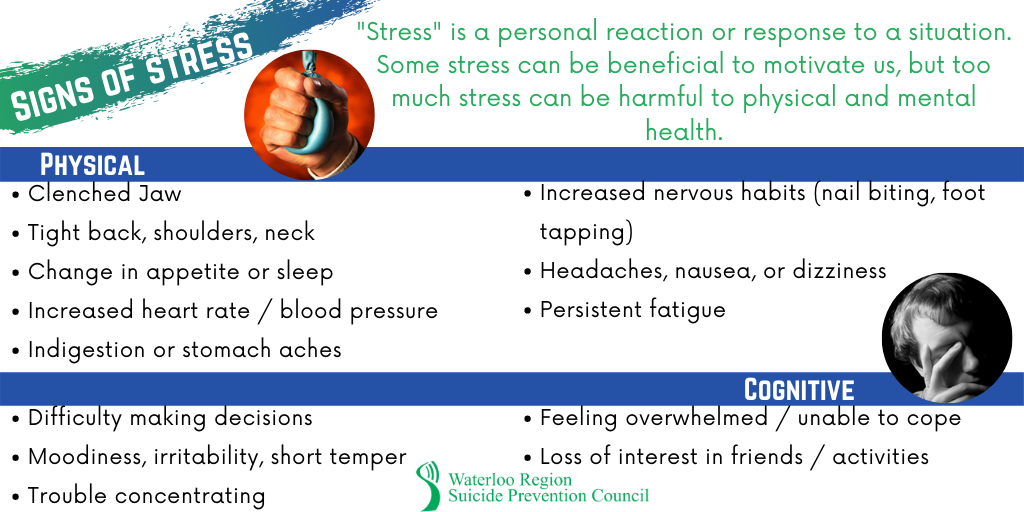Stress is an individual and personal response or reaction to a situation. Individuals may have different stress responses, different stress thresholds, and different signs of stress. The stress response may also vary within an individual day by day – what may not cause stress on one day may cause stress on another, dependent on context and presence of other stressors or resilience factors. For example, on a typical day coming home to dirty dishes may not be a stressor for you. However, if you’ve had a busy day at work and come home feeling exhausted, that same situation of coming home to dirty dishes may cause stress.
Stress can be beneficial – some researchers, such as Kelly McGonigal, PhD in her book “The Upside of Stress: Why Stress Is Good for You, and How to Get Good at It” argue that stress can have positive benefits. However other research shows that too much stress or chronic stress can lead to consequences such as poor physical and mental health (See this page of the American Psychological Association for information on the affects of stress on our body). Our threshold for when beneficial stress becomes harmful stress will differ person by person and day by day.
It is important for us all to learn to recognize what our signs or stress are – often we may not recognize we are stressed, until that stress culminates in a short temper and irritation towards family members, or body pains and headaches that seemingly ‘come from nowhere’. Often these signs tell us we have been experiencing stress, and may need to focus on reducing that stress to improve physical and mental health.
While signs of stress differ as stress is an individual response, here are some common signs of stress you may experience:

Once you’ve learned to recognize your signs of stress, what can you do about it? Take a look at our series on Self-Care or view our Life Promotion page for some resources on handling stress, building resilience, and promoting mental wellness.


